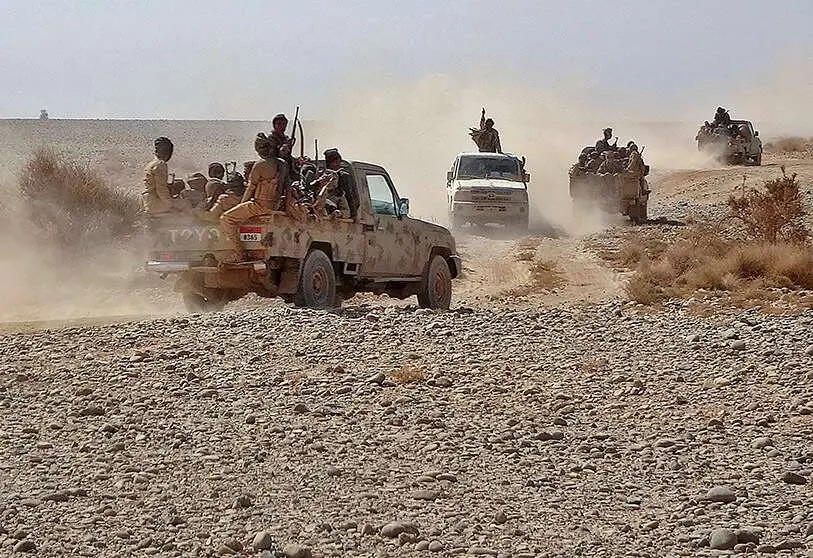Houthis claim responsibility for missile attack on Aramco facility

The situation in Yemen is increasingly complex, with tensions escalating in a context where diplomatic efforts to reach a peace agreement are the order of the day. It is usual that just before a ceasefire agreement or a situation of relative calm is reached, violence between the parties involved reaches its peak, with the aim of arriving at the dialogue table with a stronger position vis-à-vis the opponent.
The Houthi rebels claimed Thursday to have hit targets of the Saudi state oil company Aramco in Jeddah, in western Saudi Arabia with a missile, information that has not been confirmed by Riyadh, which said it had intercepted two other missiles launched against other cities.

These attacks come at a time when the Houthis have intensified the launching of drones and missiles against Saudi Arabia since the US government decided on 4 February to withdraw its support for the offensive actions of the Arab coalition in Yemen.
Saudi Arabia has not reported any attack on Jeddah or any of the oil giant's facilities, although the spokesman for the international coalition of Arab countries fighting the Houthis in Yemen, Turki al-Malki, said that they had intercepted a drone aimed at a city in the south of the country.
The drones are usually intercepted by Saudi Arabia and, when they land, do not usually cause damage or casualties, although on Monday one did injure five people in Jizan, about 50 kilometres from the Yemeni border.
A spokesman for the Houthis, Yahya Saree, said on Twitter that the rebels attacked an Aramco facility in Jeddah with a Quds-2 missile early Thursday in retaliation for Saudi Arabia's military intervention in Yemen, which has been at war for six years.

Aramco's facilities in the Red Sea coastal city of Jeddah are regular targets of the Houthi movement. Last November they hit a crude oil tank at a distribution station without causing major damage.
Aramco, the flagship of the Saudi economy, is of vital importance to the world's leading oil exporter. The company went public last December and its market capitalisation has at one point exceeded $1.5 billion.
The Houthis, the Iranian-backed Shiite rebel militia at odds with the Yemeni government and the Saudi-led Arab coalition, have recently stepped up their attacks in several Yemeni regions and Saudi Arabian territories. The aim of this escalation of violence by the Houthi rebels is more than clear: to be able to arrive with a strong position at an imminent dialogue table.
The coalition of Arab countries, led by Saudi Arabia, intervened in the conflict in Yemen in 2015 in support of the internationally recognised government led by Abd Rabbuh Mansour al-Hadi, after the latter was expelled by rebel troops from the country's capital, Sanaa. Since then, drone strikes have been a constant for the Houthis, with last Sunday's attack being the first after US President Joe Biden's announcement to withdraw support for the Arab coalition in Yemeni territory. This decision was made in parallel to the decision to remove the Houthis from the list of terrorist groups. The latter seems to be the trigger for the new wave of attacks by Yemeni forces against Saudi Arabia and Riyadh-backed forces in Yemen.

For their part, the Houthis have resumed their efforts to control the eastern city of Marib. The city is of great importance as it is rich in oil and gas, as well as being the headquarters of the Ministry of Defence. Attacks on Marib have been repelled by the Yemeni army. At least two military officers from the pro-government forces claimed that the Houthis had deployed fighters and launched attacks from several fronts against the city.
The militia, which, it should be recalled, ceased to be considered a terrorist organisation in one of the first decisions of the Biden administration, carried out an attack on Saudi Arabian population centres with missiles and drones. However, Arab coalition forces were able to intercept the Houthi offensive.
The new US perspective on the war in Yemen provides some hope for what for many is already a lost cause. The situation is becoming increasingly convoluted, with growing stakes for all sides in a conflict that is, by all accounts, far from over.
The recent escalation of hostilities has generated great concern not only in the Middle East, but throughout international society. It is feared that the already disastrous situation in Yemen will continue to worsen, raising the death toll to over 233,000 people, according to the UN, making it the world's largest humanitarian crisis and the worst since the creation of the United Nations. It is no longer just the violence across the country. It is estimated that more than 80% of the population - some 24 million people - are in need of humanitarian aid that they are not receiving.








